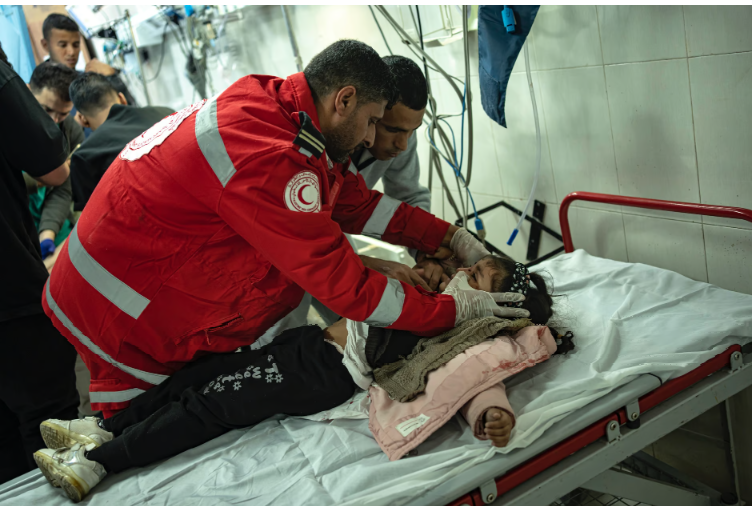 The ongoing conflict between Israel and Gaza has escalated dramatically, with recent explosions in southern Lebanon claiming 14 lives and injuring more than 450 people. These blasts, which occurred near the Israel-Lebanon border, have added another layer of complexity to an already volatile situation in the Middle East.
The ongoing conflict between Israel and Gaza has escalated dramatically, with recent explosions in southern Lebanon claiming 14 lives and injuring more than 450 people. These blasts, which occurred near the Israel-Lebanon border, have added another layer of complexity to an already volatile situation in the Middle East.
Lebanese authorities reported a series of powerful explosions early this morning, sending shockwaves through several towns close to the border. The cause of the explosions remains unclear, but officials suspect cross-border artillery fire or airstrikes as potential sources. The affected areas, predominantly civilian, have seen widespread destruction, with hospitals overwhelmed by the influx of casualties.
This latest escalation follows weeks of intense fighting between Israel and Hamas in Gaza, with both sides launching relentless airstrikes and rocket attacks. Lebanon, home to Hezbollah, a major ally of Hamas, has been drawn into the conflict. The militant group, known for its hostility toward Israel, has previously engaged in border skirmishes but has largely avoided full-scale involvement in the current Gaza conflict—until now.
The explosions have sparked fears of a wider regional war. Hezbollah has accused Israel of deliberately targeting Lebanese civilians in its military operations, while Israel has reiterated that its strikes are aimed at neutralizing military threats. Israeli Prime Minister Benjamin Netanyahu stated that his country “will not tolerate attacks from Hezbollah or any other militant group” and emphasized that Israel will respond decisively to any threat to its national security.
In the wake of the blasts, humanitarian organizations have voiced concerns about the growing civilian toll on both sides of the conflict. The death toll in Lebanon has added to the already devastating number of casualties in Gaza, where thousands have been killed and injured in relentless airstrikes.
Emergency services in Lebanon are stretched thin, as hospitals struggle to care for the wounded. Local volunteers are working alongside the Red Cross to provide immediate aid, but the situation remains dire, with some areas cut off from assistance due to the ongoing fighting.
The international community has called for an immediate ceasefire, with the United Nations, the European Union, and regional leaders urging both sides to de-escalate the violence. Efforts to broker a truce have so far failed, with negotiations stalling over mutual accusations of bad faith and violations of previous agreements.
UN Secretary-General António Guterres condemned the attacks and called for an urgent de-escalation, stating, The loss of innocent lives in Lebanon is a tragedy that must be stopped. Both parties must come to the negotiating table before more lives are lost.
As the violence continues to spill over into Lebanon, there are growing fears that the conflict could spread to other parts of the region. Neighboring countries, including Syria and Jordan, have expressed concern over the rising tensions. Observers worry that if Hezbollah fully enters the fray, it could trigger a broader confrontation involving Iran, Israel’s primary regional rival and Hezbollah’s chief backer. For now, the situation in Lebanon remains tense, with many bracing for further attacks and a potential widening of the conflict as calls for peace go unheeded.This tragic development underscores the fragility of the region and highlights the urgent need for diplomatic intervention to prevent further loss of life.
Ennywealth


